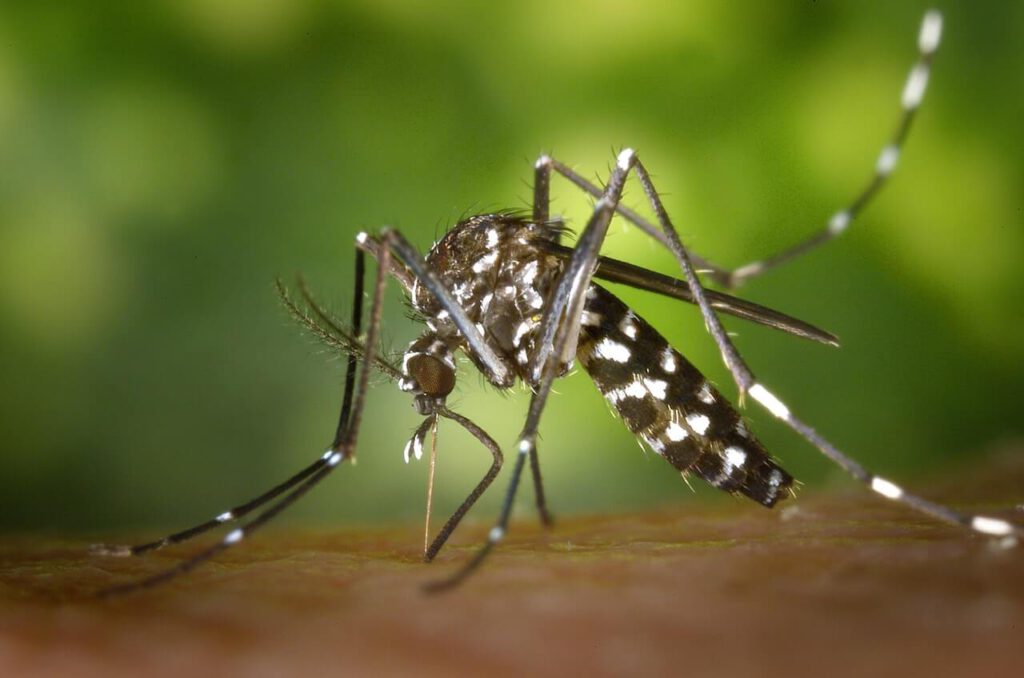[et_pb_section fb_built=”1″ _builder_version=”3.19.18″ custom_padding=”0|0px|54px|0px|false|false”][et_pb_row _builder_version=”3.19.18″][et_pb_column type=”4_4″ _builder_version=”3.19.18″][et_pb_text _builder_version=”3.19.18″]
How many pesky mosquitoes have you seen this summer? Here’s some food for thought: wherever there are mosquitoes, there is the risk of heartworm disease for your pet!
Heartworm is a dangerous worm, and when an infected mosquito feeds on your pet’s blood, the heartworm larvae enter the bloodstream. The scary part is that these larvae mature into worms that can reach up to 30cm in length.
The worms mature in the bloodstream and eventually become lodged in your pet’s heart leading to heart failure. It is at this point that the disease can be fatal. Dogs are more commonly affected by heartworm disease but cats may also be at risk.
The prevalence of heartworm in Australia has been mainly in tropical and subtropical coastal regions but in recent decades it has become increasingly prevalent in more southern areas.
The take-home point is that with changing weather patterns and subsequent alterations in the distribution of mosquito populations, heartworm disease can be unpredictable. This is why prevention is SO important as we just don’t know where it might strike next.
Prevention of heartworm is far better than an attempt at a cure but it’s important to realise that not all heartworm prevention is the same so it’s best to ask us what is the best prevention for your pet.
Most importantly, you need to be aware that many of the intestinal ‘all-wormer’ tablets do not prevent against heartworm infection.
There are topical treatments, oral treatments and a yearly injection for dogs. Ask us for the most suitable prevention for your pet – we will make sure your pet is suitably protected.
[/et_pb_text][/et_pb_column][/et_pb_row][/et_pb_section]






